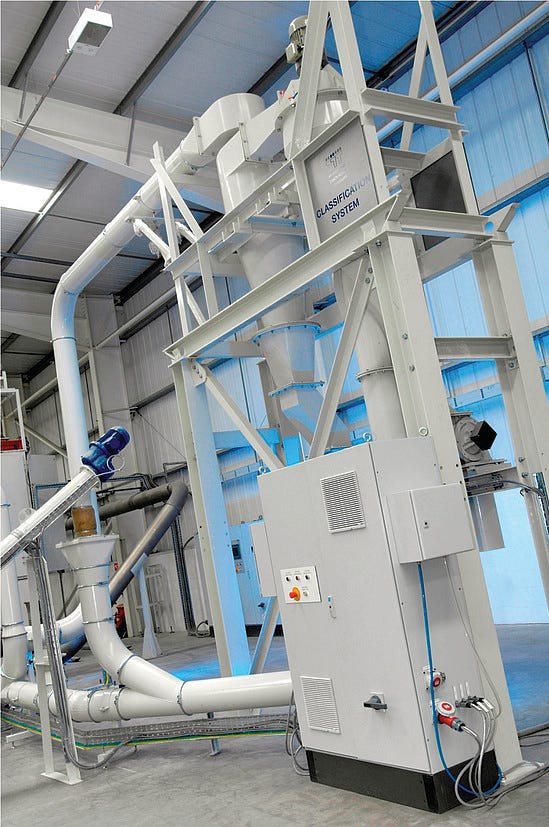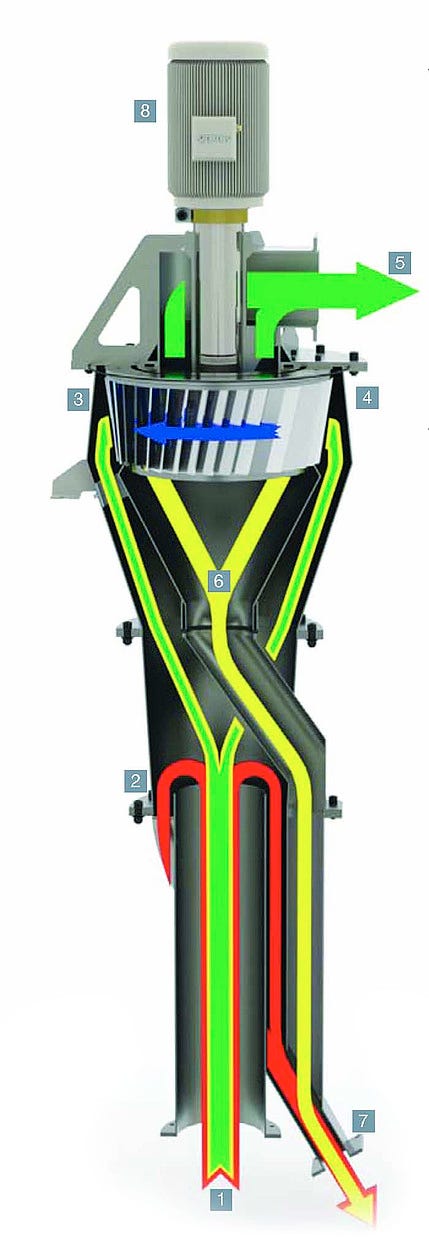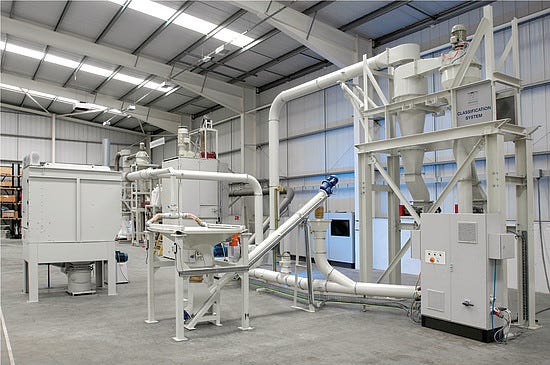Mineral Sizing Installation Improves Quality Control
December 2, 2011
|
A new IIT powder classification system is helping to improve quality control at a UK chemical products plant. |
Advanced technology powder classification equipment is helping a leading UK supplier of chemical products to improve its quality control and materials handling procedures.
Omex Environmental Ltd has recently installed new bulk powder sizing and separation equipment developed by International Innovative Technologies Ltd (IIT) to air classify supplies of caustic calcined magnesia used in the manufacture of magnesium hydroxide suspensions for a range of wastewater treatment applications.
The new plant has been installed at the Omex plant at Bardney in Lincolnshire and comprises a new IIT c-series dynamic air classifier in combination with an s-series cyclone as a modular system for the highly accurate separation of distinct grades of magnesia for different applications.
Delivered to Omex from the port of Goole, the caustic calcined magnesia is drawn into the air classifier by a re-circulating air system powered by the system fan. Material entering the classifier passes through a ‘static velocity-drop’ pre-classification stage to separate out the heavier particles and then into the classifier wheel via outer static vanes to assist particle dispersion.
The versatile IIT classifier is designed to maximize separation efficiency without compromising system energy requirements.
|
The special design of the c-series classifier has been developed for energy-efficient operation. |
The new c-series of classifiers is specifically designed to tightly control the particle size distribution of finer products and particularly for cut-points in the range of 10–160 µm, although dedicated models can also be used effectively for finer material applications.
These robust, high throughput air-stream units can accommodate the requirements of most fine powder production applications and are capable of maximizing separation efficiency without compromising system energy requirements.
The II c-series construction comprises a classifier body and wheel that are aerodynamically formed to reduce system pressure drop, maintaining the power demand of the system fan at an optimum level. Additionally, unlike other designs, IIT’s c-series classifier has no secondary airflow requirement which can increase power consumption and affect system efficiency. As a result, the advanced design of the new range of classifiers ensures that particle size remains consistent under steady state conditions.
The advanced design of the new range of classifiers ensures energy-efficient operation and the controlled delivery of a consistent particle size under steady state operating conditions.
In the Omex application, adjustment of the rotational speed of the classifier wheel and the airflow through it combine to closely control cut-point specifications for the separation of the caustic calcined magnesia feed, into fine and coarse product streams. The fine magnesia powder is extracted from the classifier on a fan-induced air stream and transferred to the s-series cyclone where it is separated from the air stream for bagging. It is then used at the Bardney, Lincolnshire plant in the manufacture of Magmex magnesium hydroxide suspensions used for treating acidic wastewaters and controlling pH levels in both anaerobic and aerobic waste treatment systems.
Meanwhile, the separated coarse particles migrate down to the coarse stream discharge at the base of the classifier, and are also bagged for onward supply for use in other agricultural products.
|
The new plant closely controls material cut-point specifications for the separation of the caustic calcined magnesia into fine and coarse product streams. |
According to the company’s development manager, Gerry Spoors, the new IIT classification plant is playing an important role in Omex’s manufacturing operations. “The new mineral sizing installation is helping us to maximize the use of supplied raw material and ensure the controlled delivery of specific particle grades for different chemical product applications,” said Spoors. “The new system has been incorporated seamlessly into our existing bulk materials handling and processing systems and its low energy use is making an important contribution to our overall operating efficiencies.”
IIT is an engineering and new-technology development company specializing in the design, precision engineering, and manufacture of a range of high output mills, classifiers, and cyclones from a state-of-the-art factory in Gateshead, North East England. For more information, visit www.iituk.com.
You May Also Like





